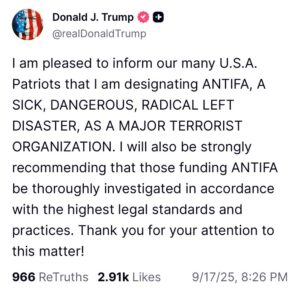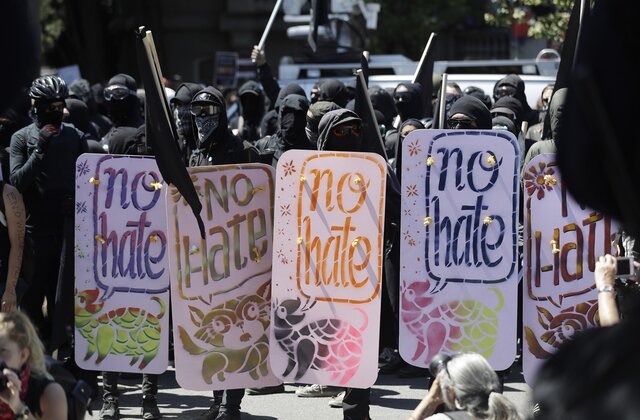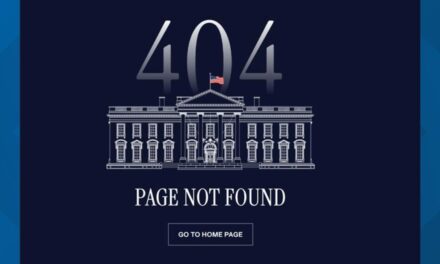There is no organization in the United States called “Antifa.” Insofar as the word connotes anything, it’s applicable to groups that track and expose white supremacists, and then impose consequences. Sometimes they will get people fired from their jobs. They also seek to disrupt white-supremacist rallies.

Researchers on these groups insist that they are filled with anarchists and far left groups that have no use for either the Democratic or Republican parties. What unites them is opposition to racism and fascism, but they also have a strong anti-capitalist bent.
They’ve been known to use violence against white supremacists. I’ve rarely seen much beyond fistfights, though, to be honest. Sometimes they’ll carry sticks or clubs and do property damage, which is annoying and counterproductive.
They’re not much a problem from a legal perspective. When people commit assaults or destroy property, they can be prosecuted accordingly, and the same is true for most white supremacist groups.
Law enforcement should monitor both extremes for signs of some kind of terror plot, but short of discovering something I can’t support classifying either as “a major terrorist organization.”
When it comes to the funding of Antifa, this would generally be something on the order of paying for some bus or plane tickets and hotel rooms as part of a plan to counter-protest a Neo-Nazi rally. I don’t think there are any major funders of these groups. Certainly, George Soros has nothing to do with them.
If you’re reading this and you have mainly heard about Antifa from right-wing media outlets, here is how you’ve been misled.
What Antifa folks generally do is expose people who are posting racist shit anonymously on the internet. They also try to identify the people that go to white supremacist rallies. And the reason they do these things is because they want there to be a cost for spreading hatred. This is the same reason why they will sometimes violently confront white supremacist rallies. These folks get to know each other online just like people who like certain video games get to know each other online. They aren’t actually organized beyond that. They have no recognized leader. They don’t have any mastermind funder. I don’t think most of them would even agree that they’re a member of a group called Antifa.
It’s silly to insist that Antifa is “a major terrorist organization” for two main reasons. First, it’s not really an organization at all. Second, they don’t have a record of committing terrorist acts.
However, if the federal government starts insisting that anyone who opposes racism and fascism is a member of Antifa and is therefore a terrorist, that is a major problem for free speech, freedom of assembly, and freedom of conscience. This is what Trump just announced that he will seek to do.








Look, those of us who have been watching and following the political landscape over the last 20-25 years know the potential for where all of this could be heading. It’s not like it’s a secret, although probably 97% of people are completely oblivious to it. Nonetheless, it has been entirely predictable, and you, among a few other intrepid political observers in the last couple of decades, have been fervently waving the red flags, trying to warn all of us, but almost none of us have listened. So here we are. It seems to me that the momentum for a true and all-encompassing American authoritarian regime is near, or possibly past, the point of no return. I have spent most of my adult life working within the safe and comforting guard rails of the prescribed founding principles of our electoral democracy. I always had confidence that the ballot box would be the ultimate determiner to where we go as country. And it now feels to me that this exercise is very close to being irrelevant and impotent. I am currently working on contacting and canvassing a lot of local precincts here, as we have a lot at stake in the upcoming local elections, but when it comes to the larger view of our democratic republic, and the work that will be required in upcoming national elections, I am truly beginning to wonder if those sorts of efforts will end up being nothing more than window dressing, something akin to sham elections held in any two-bit dictatorship anywhere in the world.
We are in the early stages of a serious repression of political dissent. From colleges to mass media, the acceleration of capitulation to threats from the ruling government is moving at hyper speed. If you look at Robert Paxton’s five stages of fascism, we are entering the latter portions of stage four, Exercise of Power, where the authoritarian ruler begins to exercise control over state institutions such as law enforcement, higher education, religious leaders, and national corporations. This is where we are. Only two countries have ever gone to Stage 5. Those were Nazi Germany and Fascist Italy during the 1930’s and 1940’s. And what sorts of responses remain for people if/when we move to Stage 5? I shudder to think where things go. If the ballot box does not save the structure and function of our democratic republic in 2026, the remaining options will be exceedingly grim and unsettling. I still cling to hope. It is simply my nature, but I fear that circumstances are aligning in a way that a peaceful road forward could be exceedingly narrow with each passing day. It’s hard to ignore the potential reality that anyone who deigns to publicly disagree or push back against any government edict could be instantly deemed a threat to national security, with all the requisite ramifications. This is the message that is being telegraphed to us every day. I suggest everyone accept it at face value.
Antifa is the equivalent to The Brotherhood in 1984.
Anyone who opposes the regime and catches the attention of the regime is an Antifa.
First, the immigrants. Then the trans.
Then comes everyone else at ranks of the ladder.
None of this is a surprise for anyone who has been paying attention.
When the First Amendment is no longer relevant, then what? Petitions to the King?
Excellent post and comments. Thank-you, all.
I’ll repeat what I’ve written here and elsewhere in recent months: one “advantage” to opposing an authoritarian regime is that the regime’s ceaseless need for control creates an ever-expanding terrain of opportunities to attack and counter-attack it.
To do successfully requires creativity, courage, discipline, and humor. Two major vulnerabilities for authoritarian regimes are 1) the appearance of weakness, and 2) ridicule. The more the opposition can create “dilemma actions” that only allow for responses that make the regime look weak or ridiculous, the better.
So, if/when Trump issues an “executive order” banning “terrorist” groups and threatening their leaders, leaders of the Democratic party—elected officials, party officials, retired leaders—could present themselves at FBI headquarters (or local offices) the next day for arrest. Either Trump has them arrested, thereby looking ridiculous (especially if Democrats have a planned campaign to escalate after the first day) or he doesn’t, thereby looking weak. We can play this game endlessly, and on any terrain of our choosing.
Trump has already backed down (for now) from the defiance of Mayor Johnson and Governor Pritzker to his plan to send the National Guard to Chicago. Harvard University continues its “negotiations” with the Trump administration but it seems likely that if Harvard walked away from the table (and especially if the university did so with all its powers) Trump would lose. Locally, a small Episcopal church in Salem MA and the community organization to which they belong have successfully and repeatedly organized hundreds of people to accompany an undocumented member to her ICE hearings and have won stays (most recently for a year) of any deportation action against her while her asylum appeal continues.
This is the way.
Too many people imagine Antifa as some shadowy, centralized organization, when in reality it’s more like a loose coalition of people with shared opposition to fascism and racism. I also agree with your point that labeling them as “a major terrorist organization” is both inaccurate and dangerous to free speech. It’s kind of like when you’re playing Geometry Dash Lite—you can’t just lump every obstacle into the same category, or you’ll miss the nuance of how to actually get through the level.